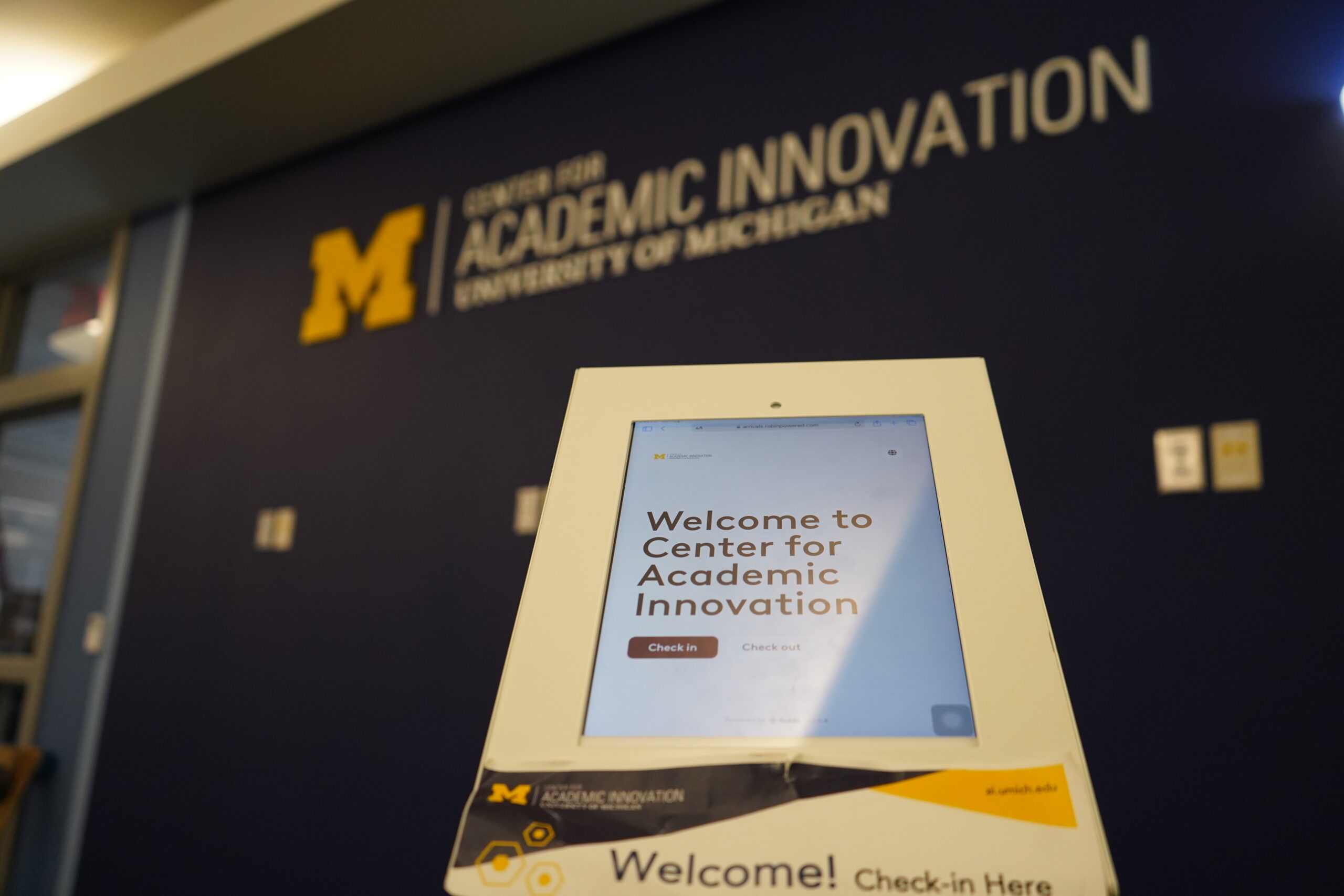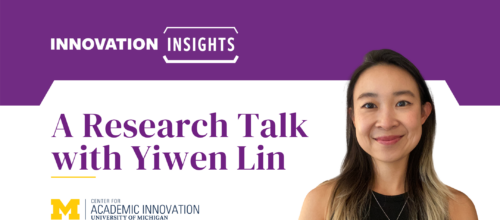GenAI Short Courses: An Interview with Jenni Patterson

Jenni Patterson is a Design Manager Senior at the Center for Academic Innovation. In this interview, Jenni speaks with us about her role at CAI, the GenAI short courses, and how to get started with a short course.
Tell us a little bit about your role at the Center for Academic Innovation
I’m a Design Manager Senior here at CAI, and in this role I oversee the project management of various online learning initiatives in our non-credit and MOOC space. My job is to keep each project team – the faculty member, Learning Experience Designer, and Media Designer – aligned and on track as we move toward the project’s launch date. I initially focused on developing Teach-Outs, but in Fall 2023 I shifted to focusing on the project management of our new short courses.
You mention the short courses – tell us a little bit about what a MOOC is, and how the short courses are different from a regular MOOC?
A MOOC, or Massive Open Online Course, is a free, online course that is open to unlimited learners from all around the world. Here at CAI, our MOOCs typically take a learner 3-8 weeks to complete, expecting around 4-6 hours of effort each week. Short courses, as you can imagine by their name, are much briefer learning experiences! We expect a short course to take a learner just 1-5 total hours to complete. The goal of a short course is to provide learners the opportunity to dive into a very focused, yet still high quality, course. Where a traditional MOOC may have several learning objectives, a short course may have only two or three, or in some cases just one. This focus lends to a shorter learning experience.
Why are you so excited about these short courses? Why should faculty want to consider working on a short course?
I’m excited about these short courses because they are a great opportunity for faculty to share their expertise with our community of learners in a short, digestible way. Whether faculty have created an online course before or are new to the process, I hope they’ll consider working on a short course because it’s a great opportunity to develop an online learning experience, start to finish, in just a few months.
The current round of short courses are all focused on Generative AI. Why do you think GenAI lends itself to this format? Who will be most interested in these courses?
I think GenAI lends itself really well to the short course format. During the ChatGPT and Generative AI Teach-Outs, we heard from our community of learners that they wanted to learn more about GenAI as it related to their specific industries and personal contexts. The GenAI short courses allow U-M to provide this specialized content to our learners.
We think learners will be interested in these courses because they offer GenAI content beyond the many foundational GenAI courses we’re seeing. We’ll be offering GenAI short courses from a variety of perspectives – from programming to business and law to social work – allowing learners from different backgrounds to learn about GenAI in a context specific to them.
If a faculty member was interested in creating a short course, what would they need to do?
Faculty who are interested in creating a short course (or any type of project with CAI!) should contact our Partnership Development team at [email protected]. When you connect with them, they’ll want to know a bit about your idea and who you believe may be most interested in taking the course. From there, they’ll work with you to help imagine the course and to discover which product type (short course, regular MOOC, etc.) is best suited to meet the goals for the learning experience.
What should people expect from working with the Center for Academic Innovation?
The staff here at CAI is eager to help bring your project idea to life! On a typical design team, you’ll be working with a Design Manager (project manager), Learning Experience Designer (who supports course development and design), and Media Designer (who manages filming, production, and media assets). We work together, both synchronously and asynchronously, meeting weekly to review course development progress while also completing individual tasks between meetings. We are committed to working collaboratively with our faculty partners to create exemplary online learning experiences!



